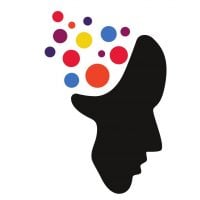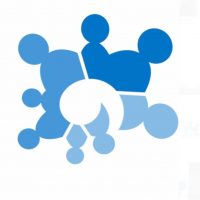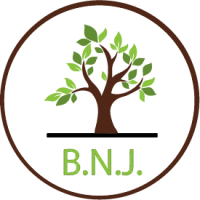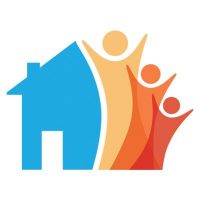John Hopkins Center for Substance Abuse Treatment and Research
Drug Rehab Center in Baltimore, Maryland
The Johns Hopkins Center for Substance Abuse Treatment and Research offers comprehensive and effective treatment and rehabilitation services for individuals with alcohol, opioid addiction, dual diagnosis and substance abuse issues.
About This Baltimore, MD Facility
The Johns Hopkins Center for Substance Abuse Treatment and Research (CSAT & R), founded in 1950, is an accredited substance abuse treatment center located in Baltimore, MD. CSAT & R specializes in providing comprehensive and effective treatment and rehabilitation services for individuals with issues and addictions related to alcohol, opioid addiction, dual diagnosis and substance abuse.
CSAT & R offers a range of treatment and rehabilitation options, including aftercare support, detox, drug rehab, dual diagnosis, intensive outpatient and outpatient programs. Patients receive individualized treatment plans that include a range of techniques and therapies, such as cognitive-behavioral therapy (CBT), dialectical behavior therapy (DBT), community reinforcement plus vouchers, contingency management, health education and substance use counseling. In addition, the center accepts private health insurance and is affiliated with Johns Hopkins. CSAT & R is committed to providing comprehensive and compassionate care to adults and families struggling with substance use disorders.
Genders
Ages
Modality
Additional
Accreditations
SAMHSA
Conditions and Issues Treated
Substance abuse refers to the intensive and inappropriate use of psychoactive substances. Psychoactive substances are those that affect brain function. These include illegal drugs, alcohol, and even the excessive use of prescription drugs. The overuse of psychoactive substances leads to severe physical or psychological dependence. It also affects the social life and relationships of the affected individual. Substance abuse is treatable.
The duration of treatment at John Hopkins Center for Substance Abuse Treatment and Research in Baltimore can require weeks or even months depending on the severity of the condition as there is a risk of relapse. Treatment options include medications, counseling sessions, various types of behavioral therapy, and group therapy in different combinations.
Addiction to prescription opioid painkillers like oxycodone and hydrocodone, and illicit opioids such as heroin, leads to potentially life-threatening withdrawal symptoms when discontinued. Opioid addiction treatment typically involves an inpatient stay at facilities like John Hopkins Center for Substance Abuse Treatment and Research to make sure they get through withdrawal safely. Treatment also includes comprehensive mental health counseling.
Conditions such as anxiety, depression, schizophrenia, bipolar disorder are part of mental illness. This may occur that opioid abuse and vice versa are induced by mental illness. Diagnosing a concurrent diagnosis or co-occurring condition at John Hopkins Center for Substance Abuse Treatment and Research is essential to understand the addiction better.
Levels of Care Offered
This center offers a variety of custom treatment tailored to individual recovery. Currently available are Aftercare Support, Detox, Drug Rehab, Dual-Diagnosis, Intensive Outpatient, Outpatient, with additional therapies available as listed below.
Detox is the primary substance abuse treatment administered to a patient suffering from drug addiction. Detox helps patients in Baltimore, MD recover from drug-addicted through regular monitoring of medical professionals and temporary utilization medication, other techniques.
If you or someone you know suffers from a substance abuse problem, it is crucial to understand the different options available for treatment and seek help as early as possible. These days, detox centers offer several methods for drug and alcohol addiction rehabilitation and treatment.
An intensive outpatient program is a good option for someone in Maryland with a milder or less severe addiction. An IOP may involve daily meetings at a treatment facility, along with personal counseling and peer meetings. Some IOP programs offer half-day treatment, while others offer full-day programs. John Hopkins Center for Substance Abuse Treatment and Research‘s IOP is customized per individual.
Outpatient programs are the standard for addiction treatment. About 9 in 10 U.S. adolescents entering addiction treatment enroll in these programs, so you’re not alone in Baltimore, MD. Treatment is delivered in different settings – offices, clinics, and primary care clinics.
Facilities offer a variety of services, such as individual and group counseling and family therapy. During the sessions, you work with a team of experts that include: General physicians, Psychiatrists, Social Workers, and Psychologists. The main goals of outpatient recovery programs are to help addicted individuals reduce drug use and addictive behaviors, eventually becoming entirely sober.
Aftercare comprises services that help recovering addicts readjust to normal day-to-day Maryland activities. It can last a year or even longer. Services include individual and family counseling, medications to reduce cravings, and treatment of psychiatric and other medical conditions. Aftercare support begins once you have completed earlier stages of treatment.
John Hopkins Center for Substance Abuse Treatment and Research‘s Therapies & Programs
In addiction recovery at John Hopkins Center for Substance Abuse Treatment and Research, therapy plays a significant role. This helps patients get to the root of their addiction and discover how the problems that contributed to their use can be handled better. Therapy can be performed in a group and one on one settings. The patient interacts with the therapist in a one-on-one atmosphere during individual therapy. This encourages them to reflect on the underlying addiction problems and develop ways to avoid potential future abuse.
Addiction and alcoholism affect the entire family. For this reason, family therapy is vital to a person’s recovery from addiction. In contrast to couples counseling, family therapy at John Hopkins Center for Substance Abuse Treatment and Research may include siblings, children, parents, and other significant people in the recovering person’s life. Family support is one of the most important pillars of recovery.
Many people turn to drugs and alcohol as a way of processing trauma that has affected them in the past. Trauma can include abuse, neglect, the loss of a loved one and other unpleasant incidents. Trauma therapy at John Hopkins Center for Substance Abuse Treatment and Research helps patients process trauma. It gives them the tools to deal with it in a healthier manner.
Dialectical behavioral therapy (DBT) is a type of Cognitive Behavioral Therapy that focuses on eliminating specific negative thoughts such as suicidal thoughts that can potentially lead to an individual inflicting self-harm. It is useful in the treatment of patients exhibiting uncontrollable emotions, intense mood swings, and borderline personality disorders.
The term “Dialectic” means the integration of opposites. In the substance abuse context, DBT refers to accepting the patient’s addiction and working to change their thoughts and behavior. It improves life skills such as controlling the intense emotions without reacting impulsively, resolving the interpersonal conflicts effectively, and promoting awareness about self and others.
Cognitive Behavioral Therapy (CBT) examines the relationship between a patient’s thoughts, feelings and behaviors. John Hopkins Center for Substance Abuse Treatment and Research aims to establish a healthy response to thoughts and feelings as an alternative to turning to drugs and alcohol. It also promotes healthy communication between addicts and those around them. It is and effective therapy for people suffering with all types of addictions.
Contingency Management (CM), also called motivational incentives, is a type of pure behavioral therapy. It’s based on the idea that behavior is shaped, motivated, or controlled by its outcomes. CM is a clinical application at John Hopkins Center for Substance Abuse Treatment and Research of operant conditioning, which helps clients eliminate unwanted behaviors by the use of positive and negative reinforcement.
Payment Options Accepted
For specific insurance or payment methods please contact us.
Is your insurance accepted?
Ask an expert, call (888) 674-0062
Additional Details
Specifics, location, and helpful extra information.
Baltimore, Maryland 21224 Phone Number(410) 550-1685 Meta DetailsUpdated November 25, 2023
Staff Verified
What else do people call John Hopkins Center for Substance Abuse Treatment and Research?
People have occasionally also searched for “Behavioral Pharmacology Research Unit - BPRU in Maryland”
Patient Reviews
There are no reviews yet. Be the first one to write one.
Baltimore, Maryland Addiction Information
For the past decade, Maryland's rate of drug use and abuse has significantly increased. The overdose rate is currently higher than the national average. This epidemic is due to the many industries where manual labor is required. As soon as prescription opioids were more readily accessible a large part of manual workers started using–and eventually abusing–the painkillers.
According to recent statistics, there are around 33,000 people who are addicted to drugs in Baltimore. Heroin-related overdose deaths are quite high in Baltimore, at 837 per 100,000 residents in 2016. Baltimore's most commonly abused drugs include heroin, cocaine, and marijuana. The people of Baltimore are friendly and welcoming, and there's always something going on. If you're looking for a place to start fresh, Baltimore is the perfect place.
Treatment in Nearby Cities
- Pikesville, MD (10.9 mi.)
- Pocomoke City, MD (99.4 mi.)
- Mount Rainier, MD (32.9 mi.)
- Baltimore, MD (3.4 mi.)
- Aberdeen, MD (25.5 mi.)
Centers near John Hopkins Center for Substance Abuse Treatment and Research
The facility name, logo and brand are the property and registered trademarks of John Hopkins Center for Substance Abuse Treatment and Research, and are being used for identification and informational purposes only. Use of these names, logos and brands shall not imply endorsement. RehabNow.org is not affiliated with or sponsored by John Hopkins Center for Substance Abuse Treatment and Research.










